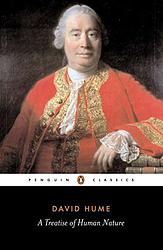A Treatise of Human Nature by David Hume
This philosophical work delves into the understanding of human nature, focusing on the mind, emotions, and morality. The author argues that all of our thoughts and ideas are derived from our senses and experiences, rejecting the idea of innate ideas. He also debates the nature of causality, the existence of the self, and the basis of moral judgments. The work is a comprehensive exploration of empiricism, skepticism, and naturalism.
The 1982nd greatest book of all time
- Published
- 1739
- Nationality
- British
- Type
- Nonfiction
- Pages
- Unknown
- Words
- 240,000
- Original Language
- English
If you're interested in seeing the ranking details on this book go here
This book is on the following lists:
- 1st on Mary Warnock's top 10 philosophy books (Mary Warnock)
- The 100 Most Influential Books Ever Written (Martin Seymour-Smith)
- The 100 Best Nonfiction Books of All Time (The Guardian)
- A Science Canon (Ian McEwan) (The Guardian)

